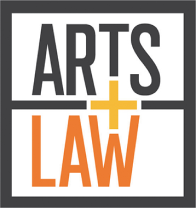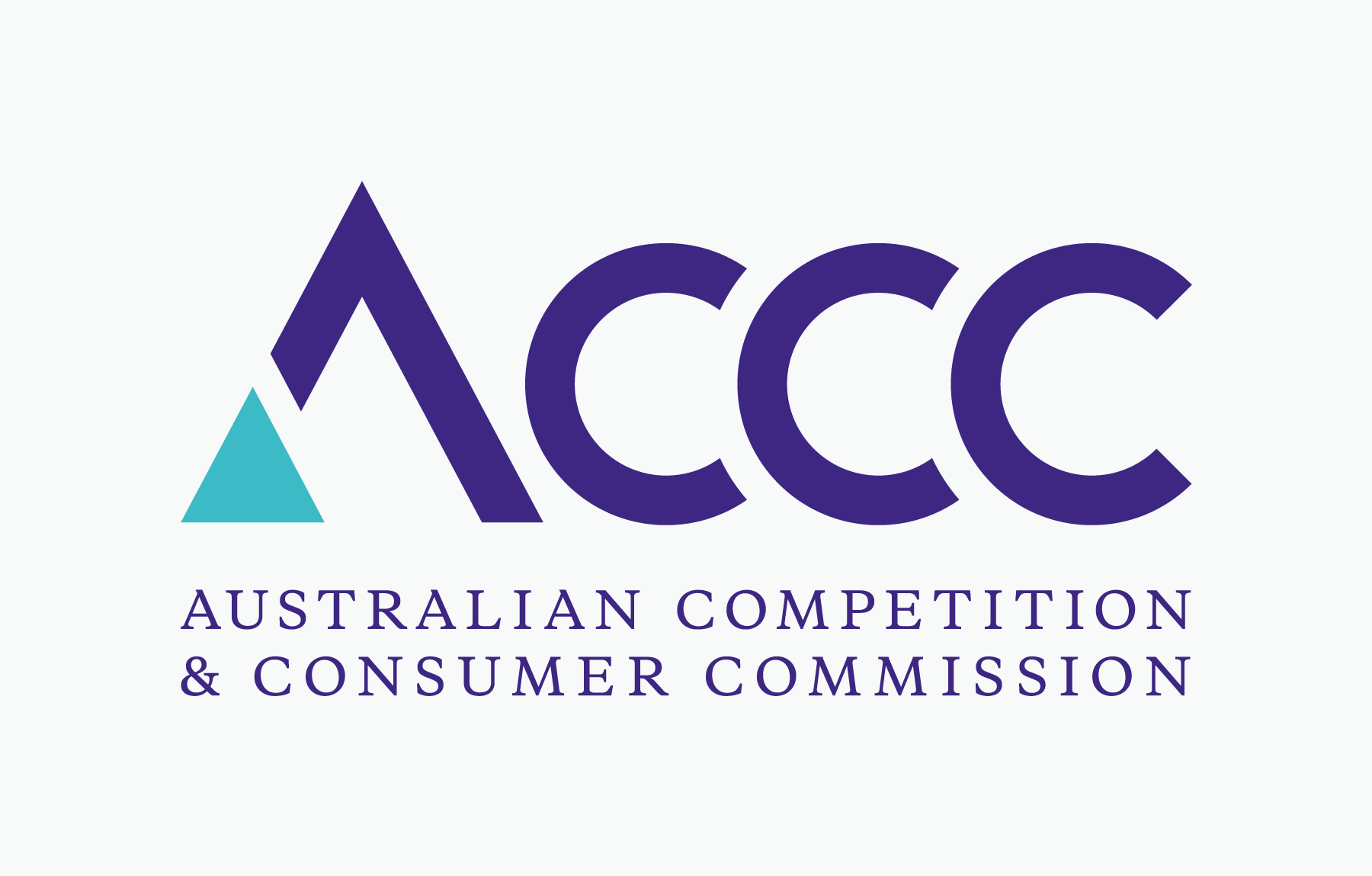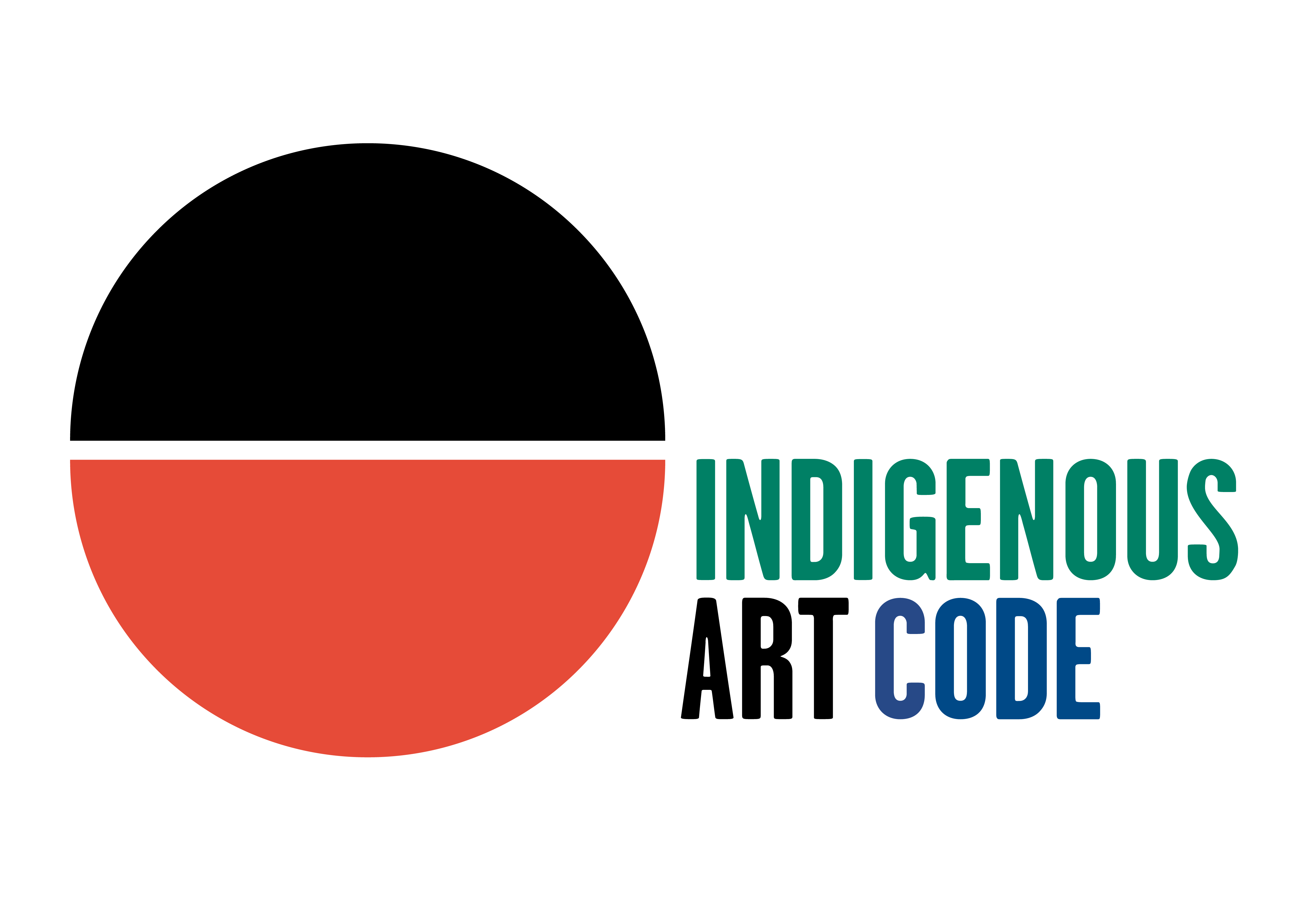Get involved in the Fake Art Harms Culture campaign
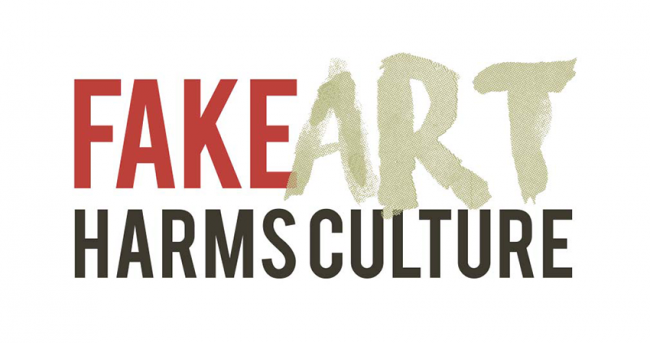
Get involved in the Fake Art Harms Culture campaign
Did you know that up to 80% of tourist, merchandise and craft products for sale in Australia are fakes?
These products are made by non-Indigenous people, are often made from poor quality materials, shipped in from overseas and sold as if they were made by an Aboriginal and/or Torres Strait Islander person.
Fake art causes harm to Aboriginal and Torres Strait Islander peoples as it misappropriates and exploits the stories, imagery, knowledge and heritage embodied in authentic works. It also destroys the income streams that could be earned from selling genuine arts and craft works to the many consumers wanting to connect with Indigenous Australia.
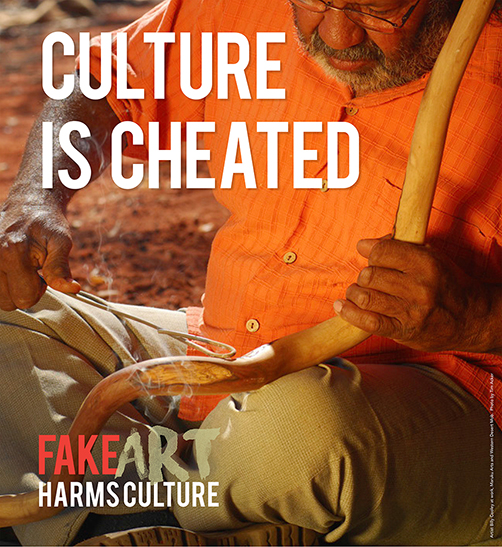
How can you help?
Become active in the Fake Art Harms Culture campaign and help protect the world’s oldest living culture from exploitation.
There are a few different ways that you can take action to support the Fake Art Harms Culture campaign and advocate for the introduction of laws to prohibit the sale of inauthentic Aboriginal and Torres Strait Islander arts and crafts:
- Make a Complaint to the Australian Competition and Consumer Commission (ACCC)
- Contact Arts Law for legal advice
- Contact the Indigenous Art Code
- Follow us on social media #FakeArtHarmsCulture
How can you help?
Become active in the Fake Art Harms Culture campaign and help protect the world’s oldest living culture from exploitation.
There are a few different ways that you can take action to support the Fake Art Harms Culture campaign and advocate for the introduction of laws to prohibit the sale of inauthentic Aboriginal and Torres Strait Islander arts and crafts.
Make a Complaint to the Australian Competition and Consumer Commission (ACCC)
You can make a complaint to the ACCC if you come across arts and crafts that are being sold as if they were made by an Aboriginal and/or Torres Strait Islander person when in fact they were made by a non-Indigenous person. Products must be misleading in their labelling or description to make a complaint to the ACCC, for example the product is described as Aboriginal or Torres Strait Islander artwork but is actually made in another country. Appropriation of Aboriginal and Torres Strait Islander culture by non-Indigenous people is not strictly illegal in Australia so long as they do not claim to be Aboriginal themselves, the Fake Art Harms Culture campaign is working to change this.
The ACCC is an independent federal authority which protects consumer interests, regulates competition in Australia and enforces compliance with laws including the Australian Consumer Law – which deals with misleading and deceptive conduct.
While the ACCC will not respond to every complaint, it is important to make complaints on the chance that the ACCC decides to take action and commence proceedings like they did against Birubi Art in 2018. Making complaints also helps build a profile around the issue of inauthentic Aboriginal and Torres Strait Islander arts and crafts.
You can make a complaint to the ACCC by filling out their Report a consumer issue form. Before completing the form, you should ensure that you have evidence about the product in question to support your complaint, as this will need to be included or attached to the form. Such evidence includes details about how you know that the product is not made by an Aboriginal and Torres Strait Islander person, photographs of the product and a link to the website or where the product is being sold with the representation that the product was made by an Aboriginal and Torres Strait Islander person.
Contact Arts Law for legal advice
If you are an artist whose work has been used without your permission, you can contact Arts Law for legal advice about your rights. If you know of an artist whose work has been used without their permission, you should suggest that they get in contact with Arts Law for legal advice. Arts Law can only provide advice to the artist.
Artists can contact Arts Law to seek legal advice by filling out Arts Law’s online legal query form. Alternatively, the artist could speak with Arts Law’s Artist in the Black Coordinator, Jo-Anne Driessens by calling (02) 9356 2566 or 1800 221 457 (toll free) or by sending an email to [email protected].
Contact the Indigenous Art Code
If you are looking to buy Aboriginal or Torres Strait Islander art, the Indigenous Art Code has a guide on what to look for and the questions to ask so you can be confident that you are buying ethically. Not only will you ensure that artists are being fairly compensated for their work but that you are purchasing an authentic piece of art crafted by an Aboriginal or Torres Strait Islander artist.
If you are concerned that an art dealer is exploiting Aboriginal and Torres Strait Islander artists, or you are an artist who wants to make sure your work is represented fairly and ethically you can contact the Indigenous Art Code.
You can contact the Indigenous Art Code by calling 0497 467 794 or by sending an email to [email protected].
